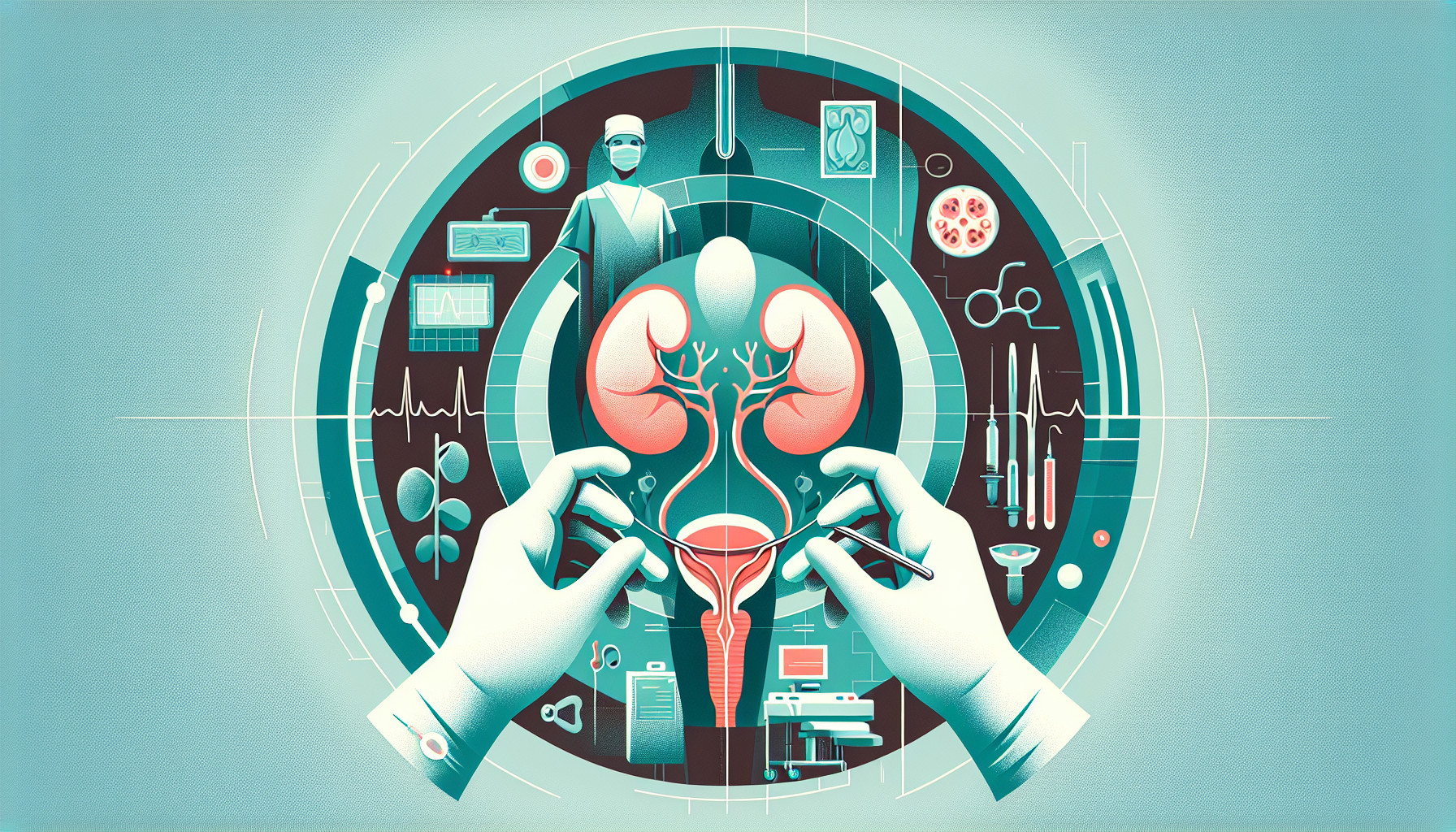Our Summary
This research paper discusses different types of urinary surgeries in horses. Simple surgeries, like those involving the urinary bladder, don’t usually need special equipment or imagery, but lab tests are useful. However, conditions affecting the ureters or kidneys often require more advanced diagnosis and minimally invasive procedures. Some surgeries on the lower urinary tract can be performed while the horse is awake and standing, but operations involving the kidney usually need general anesthesia. Laparoscopy, a procedure that uses a small camera to see inside the body, and related tools are often used. While these surgeries can be complex, they are becoming more common.
FAQs
- What types of conditions might necessitate advanced diagnostic work-ups in urinary surgery for horses?
- What kind of anesthesia is typically required for surgery involving the horse’s kidney?
- How common are the surgical procedures discussed for the urinary system in horses?
Doctor’s Tip
A helpful tip a doctor might give a patient about bladder surgery is to follow post-operative care instructions closely, including taking any prescribed medications, keeping the incision site clean and dry, and avoiding strenuous activities that could strain the bladder. It is important to attend all follow-up appointments to monitor healing and address any concerns promptly. Drinking plenty of water and maintaining a healthy diet can also support recovery and overall bladder health.
Suitable For
Patients who are typically recommended bladder surgery include those with congenital or acquired conditions of the ureters or kidneys, urolithiasis, uroabdomen, ectopic ureter, and nephrectomy. These patients may require advanced diagnostic work-ups, advanced imaging, and minimally invasive procedures. Surgery of the lower urinary tract may be done in sedated, standing adult horses, while surgery involving the kidney typically requires general anesthesia. Laparoscopy and associated tools are commonly used in these procedures. Overall, urinary surgery in horses can be challenging but is becoming more commonplace.
Timeline
Before bladder surgery:
- Consultation with a urologist or specialist to discuss symptoms, diagnosis, and treatment options.
- Pre-operative testing, including blood work, urine analysis, and imaging studies to assess the bladder and surrounding structures.
- Preparing for surgery, which may include dietary restrictions, medication adjustments, and bowel preparation.
- Anesthesia consultation to discuss the risks and benefits of anesthesia for the procedure.
- Signing consent forms and discussing potential risks and complications of the surgery.
After bladder surgery:
- Recovery in the hospital or outpatient setting under close observation by medical staff.
- Pain management to help control discomfort post-surgery.
- Monitoring for any signs of infection, bleeding, or other complications.
- Gradual return to normal activities, including diet and exercise, as guided by the healthcare team.
- Follow-up appointments with the surgeon to assess healing and discuss any ongoing symptoms or concerns.
- Physical therapy or rehabilitation to help regain bladder function and strength post-surgery.
What to Ask Your Doctor
- What specific bladder condition do I have and what is the goal of the surgery?
- What are the possible risks and complications associated with bladder surgery?
- What type of anesthesia will be used during the procedure and what are the potential side effects?
- How long is the recovery period after bladder surgery and what can I expect in terms of pain management?
- Will I need to make any lifestyle changes or follow a special diet after the surgery?
- How successful is bladder surgery in treating my condition and what are the chances of recurrence?
- Are there any alternative treatments available for my bladder condition?
- How experienced are you in performing bladder surgery and what is your success rate?
- Will I need any follow-up appointments or tests after the surgery to monitor my recovery?
- Can you explain the procedure in detail and provide any educational materials or resources for me to review before the surgery?
Reference
Authors: Fubini SL, Delco M. Journal: Vet Clin North Am Equine Pract. 2022 Apr;38(1):141-153. doi: 10.1016/j.cveq.2021.11.010. Epub 2022 Mar 10. PMID: 35282962
